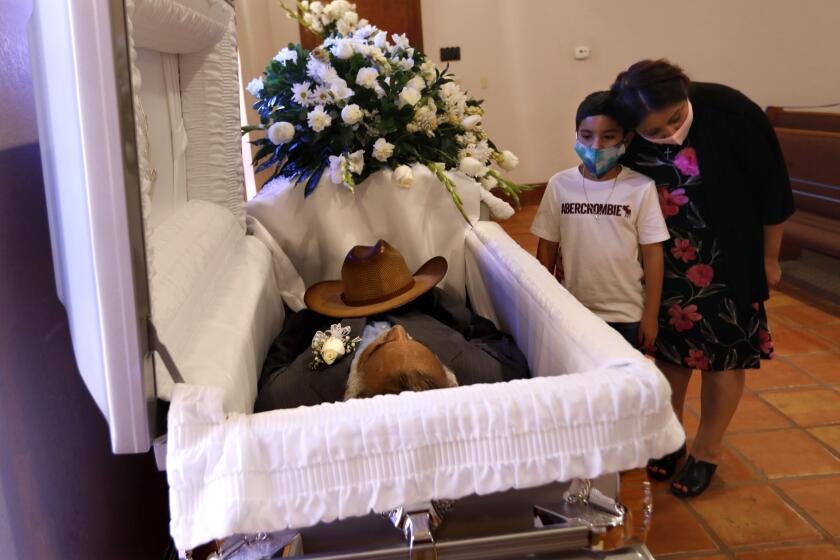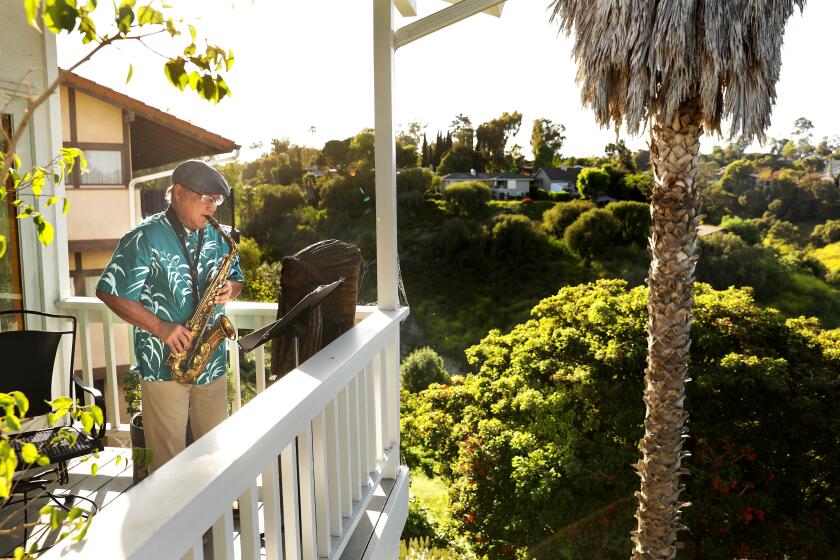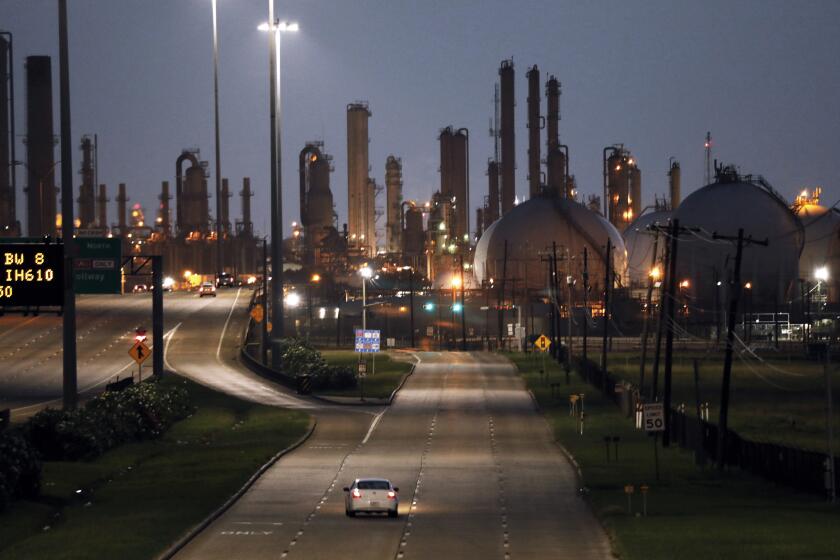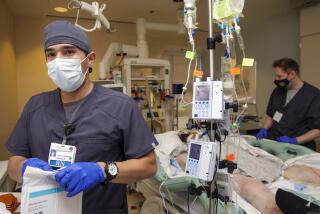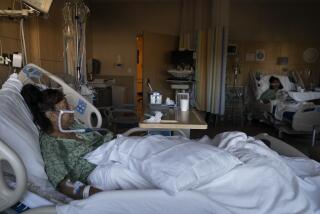Crises nurses for-temporary-hire join battle on coronavirus front lines
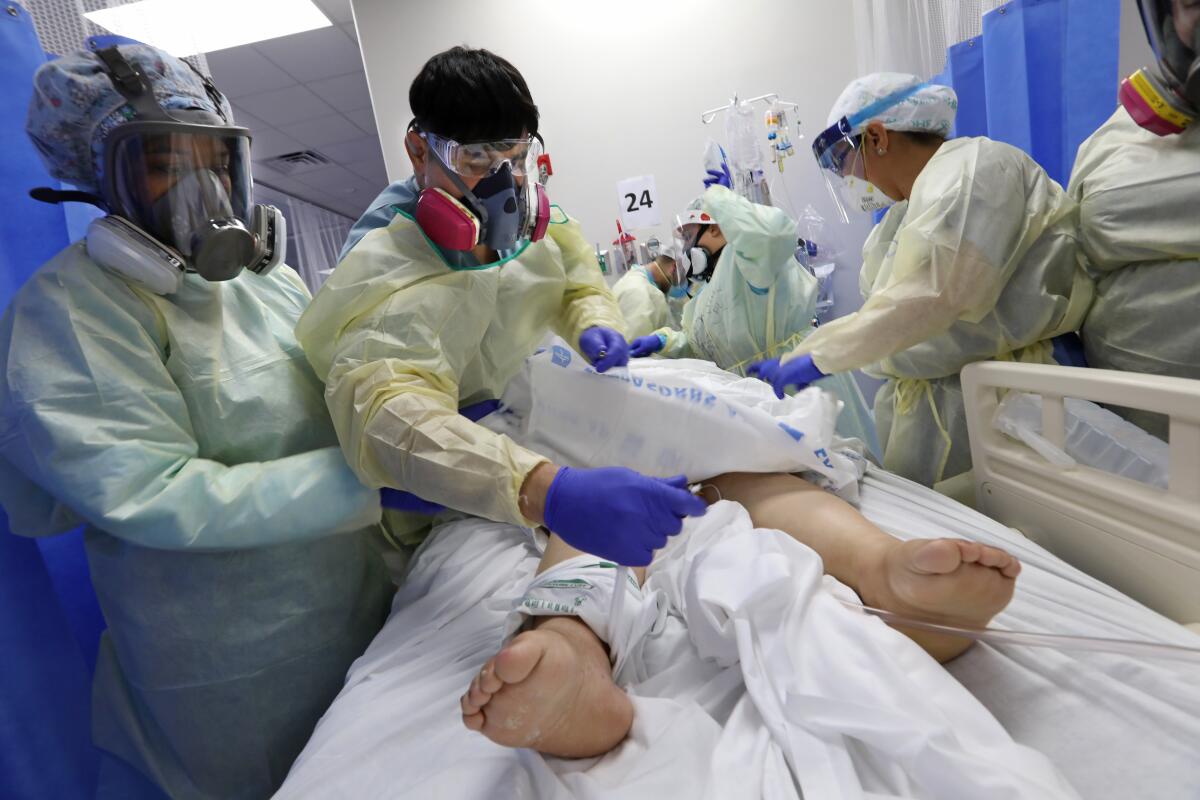
EDINBURG, Texas — Crisis nurse Catrina Rugar was in full protective gear, checking a ventilated patient at a new COVID-19 unit in Texas’ Rio Grande Valley, when a doctor stopped to ask how old the man was: 40.
“They keep getting younger,” Rugar said.
Doctor and nurse bemoaned how people in Florida and Texas were ignoring pandemic restrictions.
“No one’s seeing us drown in patients,” Rugar said.
Rugar is part of an army of thousands of nurses and other medical staff, including some from Southern California, who were deployed first to New York City at the start of the pandemic, then to south Texas this month to battle the virus. Contracted by staffing agencies that set up temporary offices in Rio Grande Valley hotels, registered nurses are paid $95 an hour ($142 an hour for overtime) plus travel expenses to work 12-hour shifts, seven days a week for months at a time (nurse practitioner jobs pay more).
“You thought NYC was the biggest activation in American history with 4,500 medical professionals? So did we,” the Krucial Staffing agency said in a job posting on Facebook last week seeking nurses and other medical staff. “Our operations have moved to the great state of Texas. We are on track to eclipse that number.”
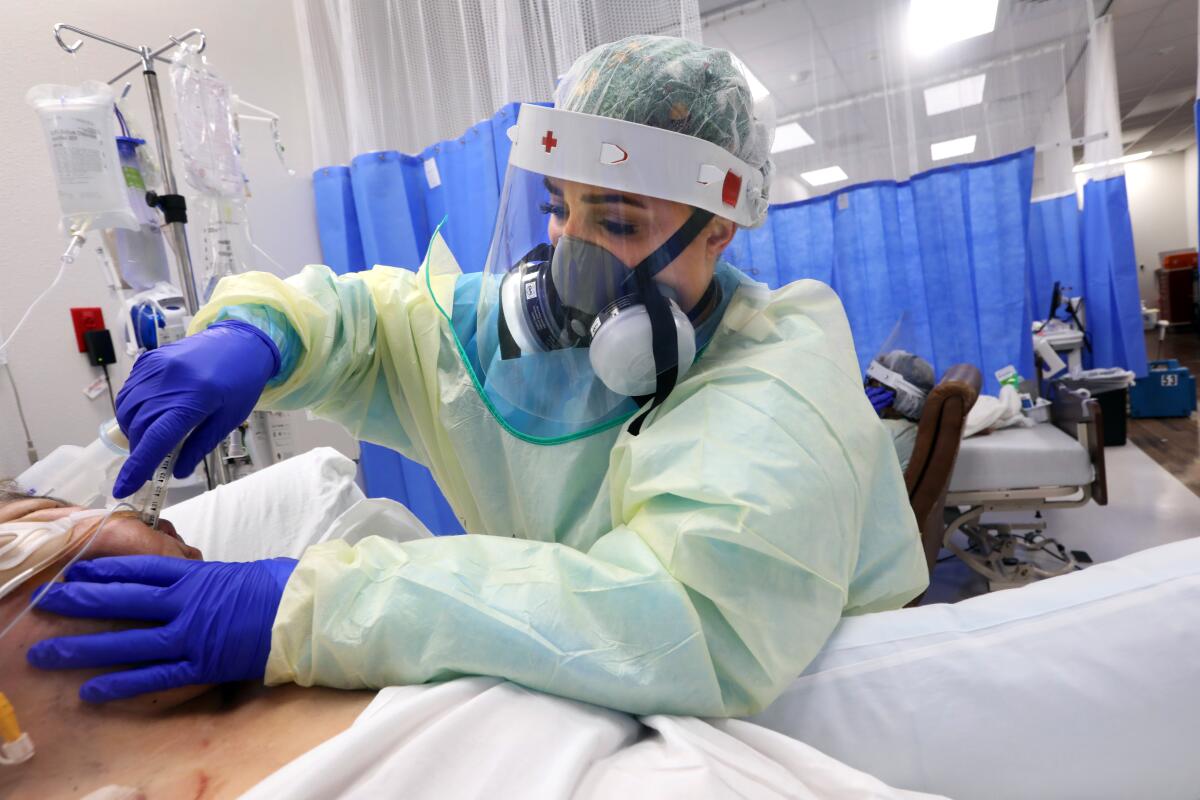
A lawsuit filed by seven former Krucial nurses in New York this spring alleges they were forced to work without sufficient protective equipment and to perform work beyond their scope of training, putting them and their patients in danger. When they complained, they said they were fired.
“Based on information from many former Krucial nurses — not just my clients — Krucial’s practices risk people’s lives by sending in unqualified nurses who are attracted to the high pay,” said Gregory Antollino, a New York-based attorney representing the nurses in their lawsuit.
Krucial Staffing, based in Overland Park, Kan., released a statement Friday saying it “vehemently denies the claims asserted in that lawsuit. We fully intend to defend our company from these false allegations.”
Rugar, who worked for Krucial at the 530-bed DHR Health in Edinburg, said the hospital was better prepared than those she staffed early in the pandemic in Harlem and the Bronx. But the Texas facility was still in crisis, she said, forced to cope with shortages of equipment and personnel amid a seemingly endless stream of critically ill patients. One of the women on a ventilator she cared for last week had already lost her husband to COVID-19.
On the Texas border, a culture of hard work and family gatherings helped spread coronavirus since the state reopened, filling hospitals and morgues.
This week charter buses and vans ferried nurses from valley hospitals to hotels, where staff placed “Healthcare heroes” signs on their doors, thank-you banners in lobbies and ear plugs at the front desks for those on the night shift. At morning and evening shift change, nurses in scrubs and pink respirator masks arrived in groups. Some asked hotel staff for trash bags to carry their soiled scrubs; others for deliveries. Some had ordered protective equipment such as gas masks in advance, unsure what conditions they would face in COVID units. Hotel halls were lined with their clogs and sneakers, which they left outside to avoid contaminating their rooms.
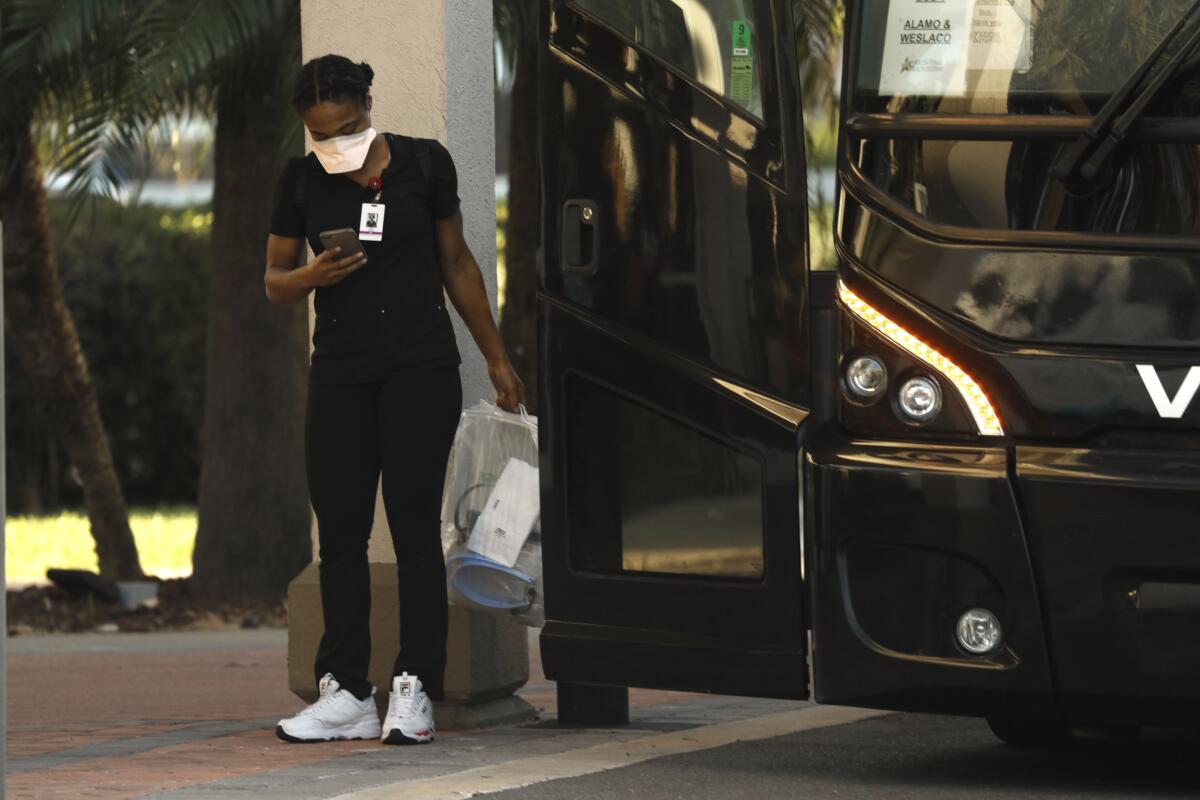
“We just have to try our best,” said Rugar, 34, who has worked as an emergency room nurse for a decade. “We’re making progress.”
Rugar, who lives in Crystal River, Fla., said she was skeptical about the pandemic when she arrived in New York, but quickly realized the severity of the risk and was “a changed person” when she left 39 days later. She gets frustrated when she sees people refusing to wear face coverings and practice social distancing or calling the pandemic a hoax. Her husband and brother are nursing assistants temporarily assigned to a different south Texas hospital. But Rugar said even her Cuban American family back in Florida had their doubts.
“There’s people saying, ‘Oh, the media’s lying. The numbers are fake.’ There’s a lack of trust,” she said, until people get infected. “Then they want all the help they can get.”
The more we stay home, the less the coronavirus spread, according to a new study of 211 U.S. counties that are home to more than half all Americans.
She planned to return to Florida this week with her husband and brother to quarantine for two weeks, then continue working at COVID units there.
Working with Rugar on the COVID-19 team in Texas was contract nurse Gabriel Leyva. When the pandemic began, Leyva, 34, a single father raising a 7-year-old, was only a few months out of nursing school at Cerritos College, working at Rancho Los Amigos National Rehabilitation Center in his native Downey.
“I didn’t know what I was getting into,” he said.
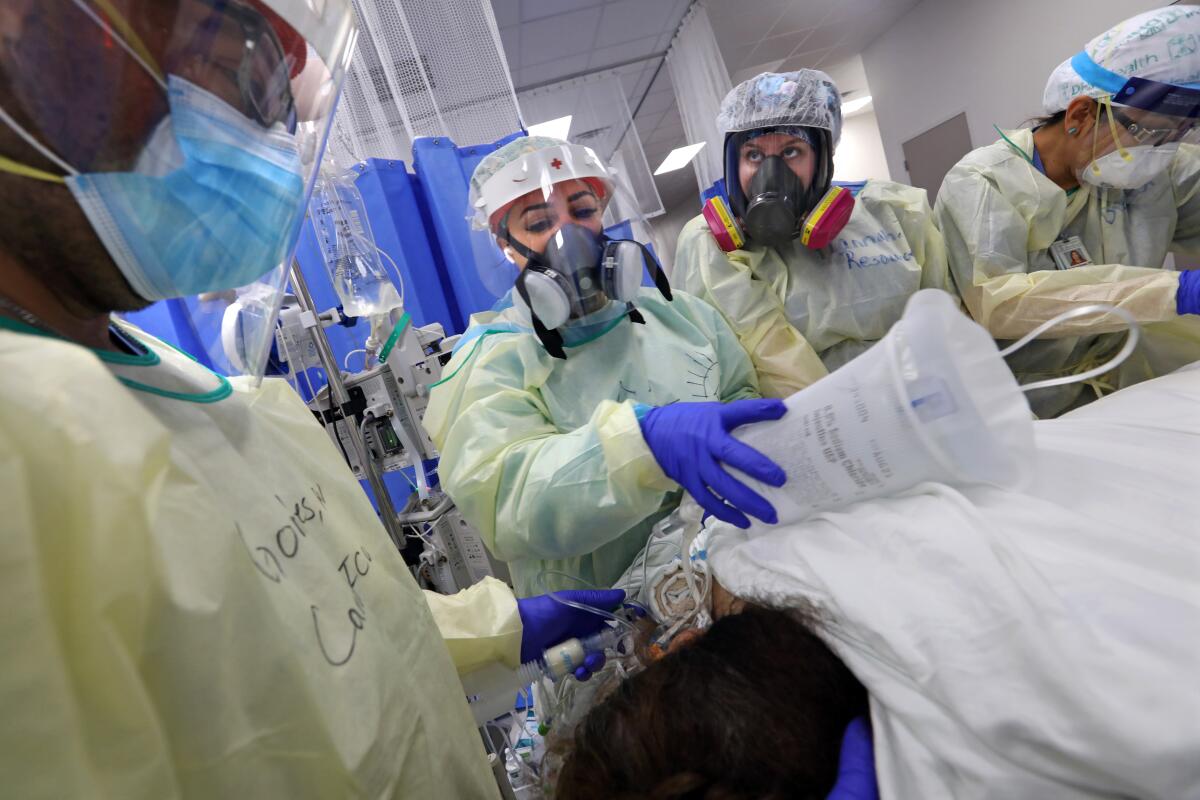
He said his parents worried about his safety when he left for a six-week assignment in New York.
“One of the things my dad asked me was, ‘What assets do you have set aside for your daughter if you die?’” he said.
But Leyva said he’s learned how to safely work as part of ever-evolving teams to treat the coronavirus.
“It’s nurses from all over the nation coming together to overcome this virus,” he said. “You learn to adapt quick. It’s something I’m learning with each deployment.”
One of his friends from nursing school is also deployed in Texas, Jaime Zamora, 30, of Santa Fe Springs.
Zamora had just graduated in February when the pandemic started, and he said he went straight to New York because “I wanted to find a way to help.”
As coronavirus spikes in Houston, refinery towns to the east that boomed before the pandemic now face business closures and layoffs.
In New York, he worked the day shift on a psychiatric medical unit full of COVID-19 patients at Bellevue Hospital. Leyva worked night shift. In the evenings at shift change, their spirits lifted when residents of an adjacent apartment building would open their windows and clap.
That doesn’t happen in Texas, and after three weeks Zamora said he often feels drained, emotionally and physically. He’s seeing more people infecting their loved ones.
“I’m constantly arranging FaceTime calls with entire families. I’ve seen many brothers and sisters crying. It’s a family disease,” he said.
A nursing job’s waiting for Zamora at Los Angeles County-USC Medical Center. But he plans to stay in Texas for at least another week, maybe two.
“That’s what I became a nurse for: to help,” he said. “I’m working every single day until it’s time to go home.”
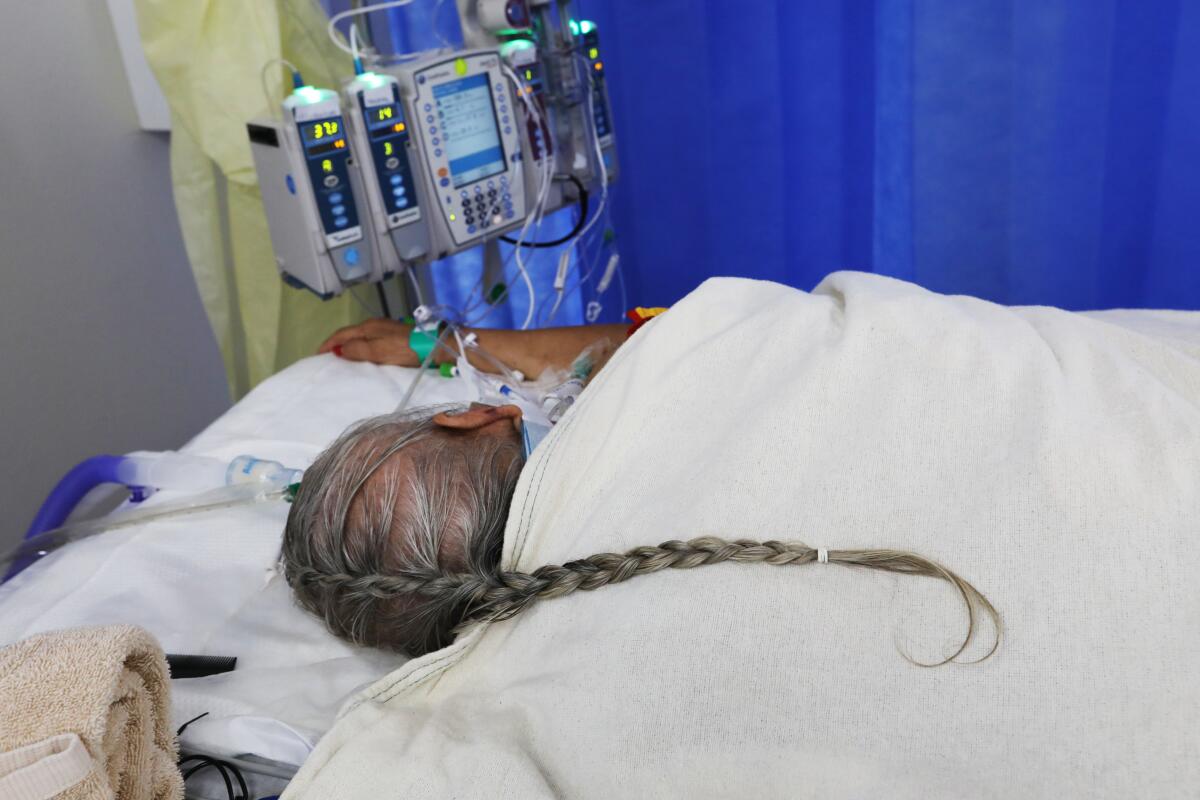
More to Read
Sign up for Essential California
The most important California stories and recommendations in your inbox every morning.
You may occasionally receive promotional content from the Los Angeles Times.

